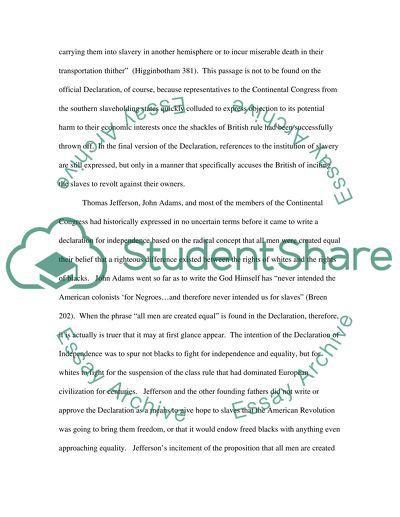Cite this document
(“Slavery in American and the Declaration of Independence Essay”, n.d.)
Slavery in American and the Declaration of Independence Essay. Retrieved from https://studentshare.org/history/1505620-slavery-in-american-and-the-declaration-of-independence
Slavery in American and the Declaration of Independence Essay. Retrieved from https://studentshare.org/history/1505620-slavery-in-american-and-the-declaration-of-independence
(Slavery in American and the Declaration of Independence Essay)
Slavery in American and the Declaration of Independence Essay. https://studentshare.org/history/1505620-slavery-in-american-and-the-declaration-of-independence.
Slavery in American and the Declaration of Independence Essay. https://studentshare.org/history/1505620-slavery-in-american-and-the-declaration-of-independence.
“Slavery in American and the Declaration of Independence Essay”, n.d. https://studentshare.org/history/1505620-slavery-in-american-and-the-declaration-of-independence.


